An impacted wisdom tooth is a common dental problem that can require treatment. If left untreated, an impacted wisdom tooth can cause various complications, such as infection and pain.
In this article, we will look at some of the treatment options available for impacted wisdom teeth.
What Is an Impacted Wisdom Tooth?
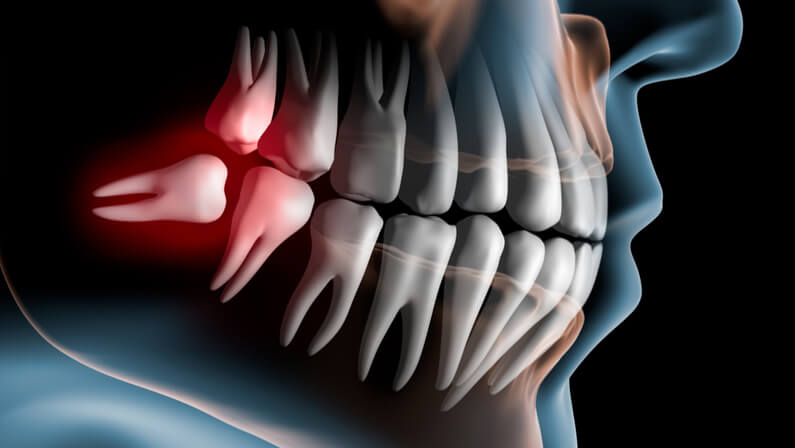
An impacted wisdom tooth is a tooth that has failed to erupt or has erupted only partially, into the mouth. Impacted wisdom teeth are a common dental problem, affecting approximately 5 million Americans every year.
Impacted wisdom teeth can cause pain and other oral health problems, and may need to be removed. Impacted wisdom teeth are most commonly found in the back of the mouth, in the molar area.
How To Know if Wisdom Tooth Is Impacted
An impacted wisdom tooth is one that has not erupted fully into the mouth. Impacted wisdom teeth can cause a number of problems, including pain, infection, and damage to other teeth. If you think you may have an impacted wisdom tooth, there are a few things you can do to find out for sure.
- One way to determine if your wisdom tooth is impacted is to look at your x-rays. If your dentist can see that the tooth is not coming in properly, it is likely impacted.
- Another way to determine if your wisdom tooth is impacted is to feel around your jaw for any swelling or tenderness. If you experience any of these symptoms, it may be indicative of an impacted wisdom tooth.
If you think you may have an impacted wisdom tooth, it is important to see a dentist or an oral surgeon as soon as possible.
What Are the Symptoms of an Impacted Wisdom Tooth
Symptoms of an impacted wisdom tooth include the following:
- Pain in the jaw
- Swelling of the jaw
- Pain when chewing
- Sensitivity to hot and cold
- Redness and swelling of the gums
- Bad breath
- Toothache may also be present. If an impacted wisdom tooth is not treated, it may cause tooth decay or damage to the surrounding teeth or gums.

What Can Cause Impacted Wisdom Tooth
Impacted wisdom teeth are a common dental issue. Wisdom teeth are the last teeth to come in, and when they don’t have enough room to grow in properly, they can become impacted. This means they can’t break through the gum line and can cause pain and other dental issues.
There are several things that can cause impacted wisdom teeth, including:
- Crowding of other teeth: When there is not enough space for the wisdom teeth to erupt.
- Misaligned jaws: When the upper and lower jaws are not properly aligned, it can put pressure on certain teeth and cause them to become impacted.
- Small jawbones: If the jawbone is too small, there may not be enough room for all of the teeth to come in properly. This is especially true for women, whose jawbones are typically smaller than men’s jawbones.
- Overactive salivary glands: Your salivary glands are constantly producing saliva, which helps to keep your mouth and teeth clean. But if your salivary glands are overactive, they can produce too much saliva. They can fill up the space around the tooth and keep it from erupting.
What Are Different Types of Impacted Wisdom Teeth
Mesial impaction
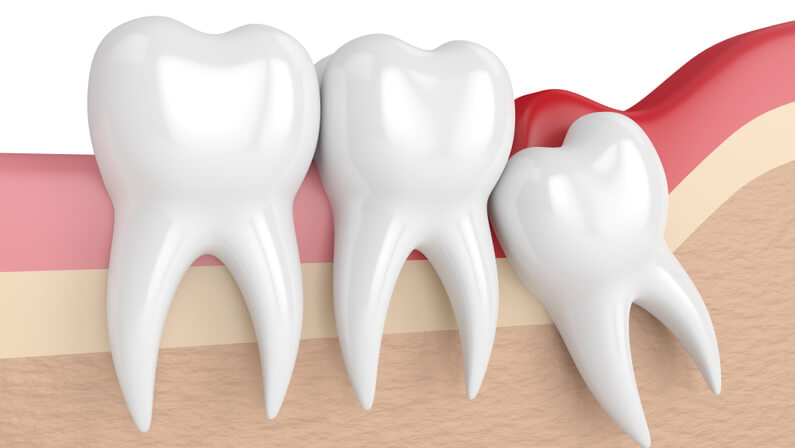
Mesial impaction is a dental condition that affects the third molar, or wisdom tooth. This tooth becomes impacted when it fails to erupt properly into the mouth.
Distal impaction
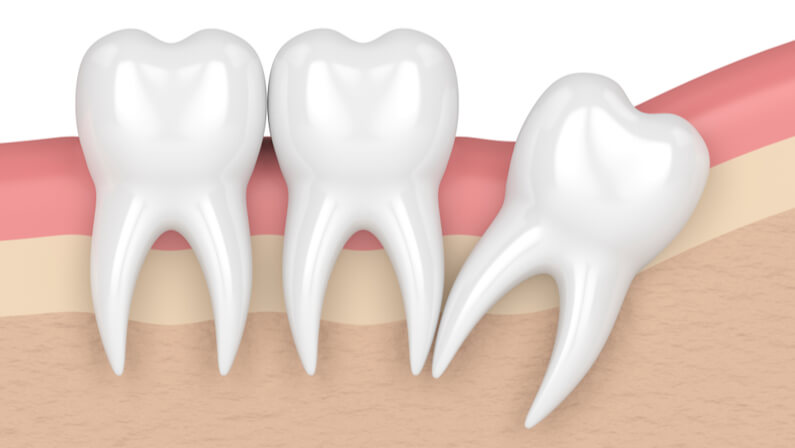
Distal impaction is the most common type of wisdom tooth impaction. It occurs when the wisdom tooth is angled towards the back of the mouth, and the lower part of the tooth is impacted (stuck) in the jawbone. Distal impaction is more common in men than women, and typically affects people between 17 and 30 years old.
Vertical impaction
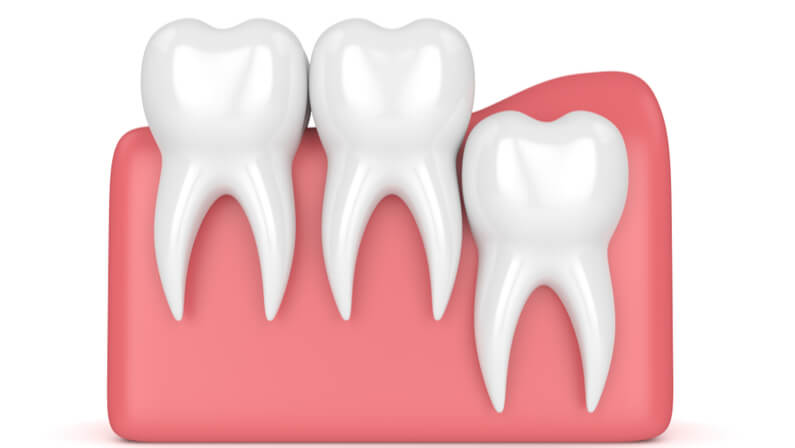
Vertical impaction is when a wisdom tooth becomes impacted in the jawbone in a vertical direction. This is the most common type of impaction and occurs when the tooth does not have enough space to grow in the correct position.
Horizontal impaction
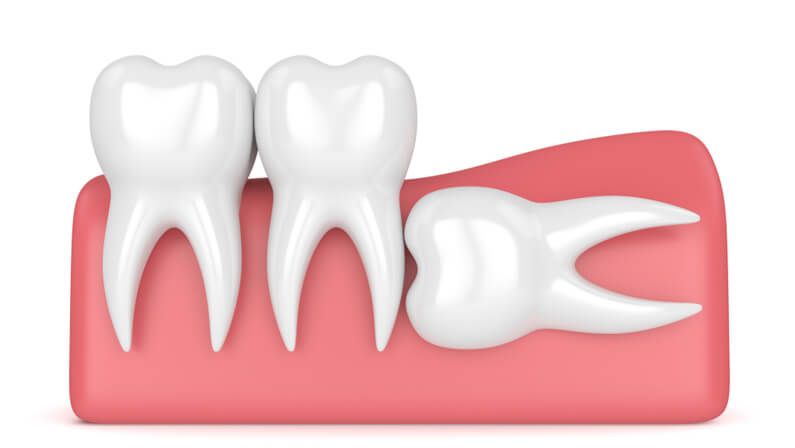
Horizontal impaction is the rarest type of impaction. This occurs when a wisdom tooth becomes impacted in the jawbone in a horizontal direction. Horizontal impaction is more common in women than men and occurs most often between the ages of 17 and 30.
How To Treat an Impacted Wisdom Tooth
The dentist will first assess the severity of the impaction and then determine the best way to remove the tooth. In some cases, the dentist may be able to remove the tooth using a simple extraction technique. However, in more complicated cases, the dentist may need to perform surgery to remove the tooth.
How to relieve impacted wisdom tooth pain
If you’re experiencing pain from an impacted wisdom tooth, don’t worry – there are several ways to reduce pain. Over-the-counter medications like ibuprofen or acetaminophen can help to reduce inflammation, and you can also try using a cold compress on the area. If the pain is really bad, your dentist may prescribe a stronger medication to reduce swelling.
In addition, there are a few home remedy solutions to help loosen the tooth and make it easier to remove. One is to gently massage the area around the tooth, and another is to use a saltwater mouth rinse.
How Much Does Wisdom Teeth Removal Cost
The cost of wisdom teeth removal depends on the dentist, the location, and the severity of the situation. Wisdom teeth removal is a common procedure, and most insurance plans will cover some or all of the cost. If you are in Houston, Texas, and considering wisdom teeth removal, contact Brownstone Dental for more information about your options and payment plans.
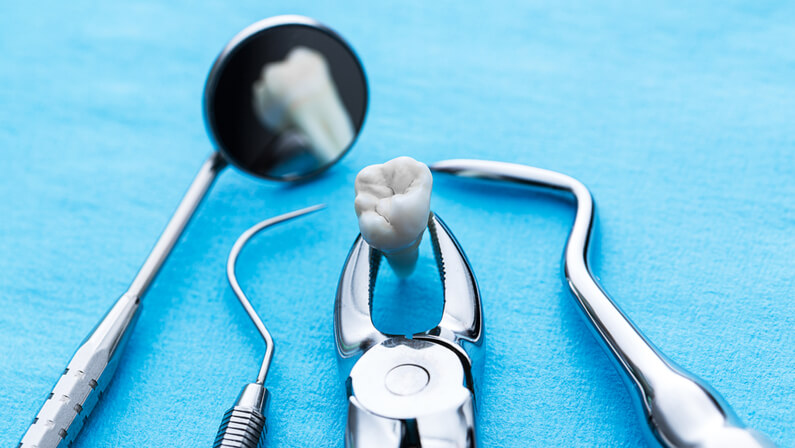
What Are the Risks and Complications of Wisdom Teeth Removal
Wisdom teeth removal is generally safe but there are some risks and complications that can occur.
These include:
Dry sockets
When an impacted wisdom tooth is not removed, the gum tissue around the tooth can become irritated and infected. If the infection spreads to the bone, a condition called dry socket can develop.
A dry socket is a painful condition that occurs when the blood clot that forms in the socket after surgery dislodges or dissolves. Without the blood clot, the underlying bone and nerves are exposed to air and food particles, which can cause inflammation and pain.
Infection
The removal of wisdom teeth is a common procedure, but it can often lead to infection. This is because the wisdom teeth are often impacted, meaning they are unable to fully erupt from the gum line.
Impacted wisdom teeth can be difficult to clean and can provide a breeding ground for bacteria. Bacteria can cause inflammation and infection in the surrounding tissues. In some cases, the infection may spread to the jawbone or even to the brain.
Damage to nearby structures
One of the complications that can occur during or after wisdom teeth removal is damage to nearby teeth. This is due to the fact that an impacted wisdom tooth can push neighboring teeth out of alignment. When the dentist removes the wisdom tooth, they may also need to adjust the position of the neighboring teeth in order to prevent them from moving back into their original positions.
How Long Does It Take To Recover From Wisdom Teeth Removal?

It’s no secret that having your wisdom teeth removed is a bit of an ordeal. But just how long does it take to recover? Depending on the individual, the healing process can take anywhere from a few days to a couple of weeks. In general, most people feel back to their old selves within 10-14 days.
What Happens if You Don’t Remove Impacted Wisdom Teeth?
If you don’t remove an impacted wisdom tooth, there are a few things that could happen. The impacted tooth could cause pain in the jaw, gum disease, or even an infection. If left untreated, any of these problems could lead to much more serious health issues. It’s important to have an impacted wisdom tooth removed by a dentist as soon as possible to avoid any of these problems.
Final Thoughts
An impacted wisdom tooth is a tooth that has not erupted, or come out of the gum line, into the mouth. It can be caused by a number of things, including the misalignment of the teeth or crowding. Impacted wisdom teeth can cause a number of complications, including pain, infection, and damage to other teeth. In some cases, they may need to be removed surgically.
If you are experiencing an impacted wisdom tooth and are looking for medical advice in Houston, Texas don’t hesitate to contact Brownstone Dental.